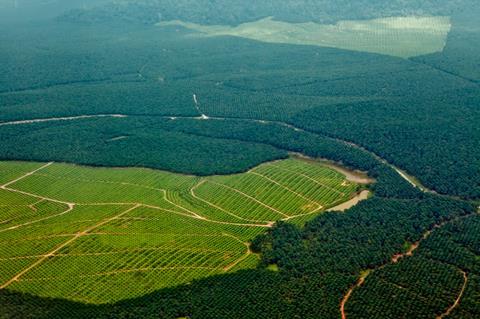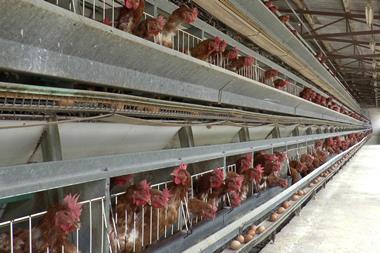
The UK joining the CPTPP trading bloc in 2023 has been hailed as a step forward for the nation’s trade relations. However, the subsequent removal of the 12% tariff on palm oil and trade opening with Malaysia (the UK’s second-largest palm oil supplier) as a consequence of the new partnership is a major cause for concern, in regards to the country’s climate ambitions and sustainability targets.
Palm oil remains on the ingredient lists of at least 50% of the packaged products we find in supermarkets, yet its harvesting persists as one of the leading causes of deforestation – resulting in the destruction of some of the world’s most essential and biodiverse rainforests. The science is clear: if the destruction of rainforests continues, we cannot tackle the climate crisis.
Back in 2012, the UK government recognised that while we are part of the palm oil problem, we could also be part of the solution. But despite ambitious commitments since then in favour of 100% sustainable palm oil, joining the CPTTP will impede any progress made so far towards global climate ambitions, particularly with a chance of increased imports from areas that have been deforested. True change will only come when there are strict rules and incentives on the use of alternative sustainable ingredients or fully traceable palm oil that’s not grown in areas where the rainforest has been deforested.
While we don’t anticipate an overwhelming increase in UK imports from Malaysia beyond the current 15%, what the deal won’t do is drive us any closer to a ‘positive movement’ which declines usage or encourages a wider shift to palm oil that’s grown in a fully sustainable and traceable way. By removing tariffs, we’re also sending the message that we’re willing to overlook environmental consequences for the sake of trade – instead of focusing energy to ensure all imports, including palm oil, are not detrimental to our climate ambitions.
It’s not just environmental standards on the line. What’s more, joining the CPTTP could lead to a race to the bottom on food standards and compromise better business practices across the board. The new partnership includes provisions on regulatory coherence, which could mean the UK lowers its food standards to align with those of other member countries – leading to serious consequences for public health and safety, as well as animal welfare.
We’re firm believers that food should be as natural and unprocessed as possible, which is one of the reasons why we have been palm oil-free since day one. As a certified B Corp, Pip & Nut is all about striving to be ‘better’, whether that’s in the sustainable sourcing of our ingredients or our commitments to the planet through our net zero targets and carbon neutrality.
Despite this one step back, I hope we can take action to propel forwards and improve standards, reintroduce palm oil tariffs and strive for better despite the new deal. One thing is for certain, it will require effort from both government and businesses to adhere to the right levels of certification and traceability on imports to meet those commitments.



















No comments yet